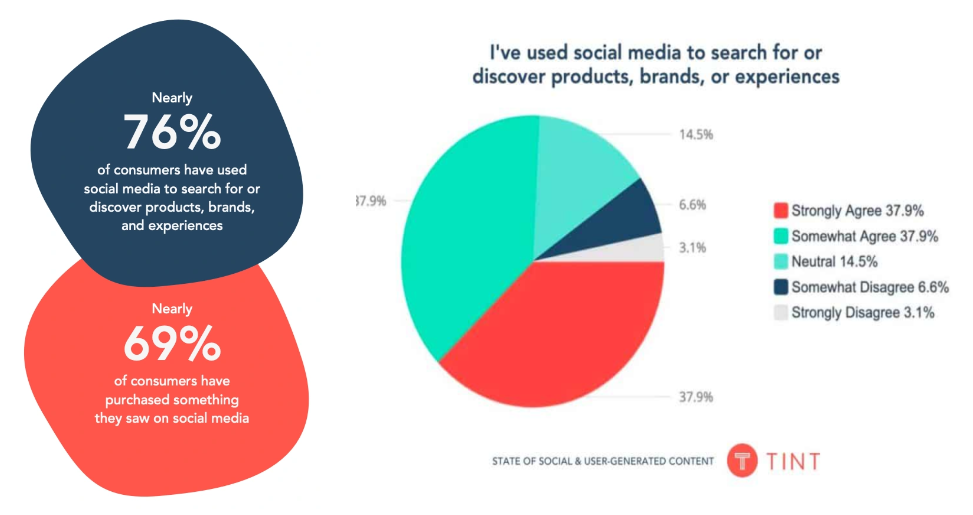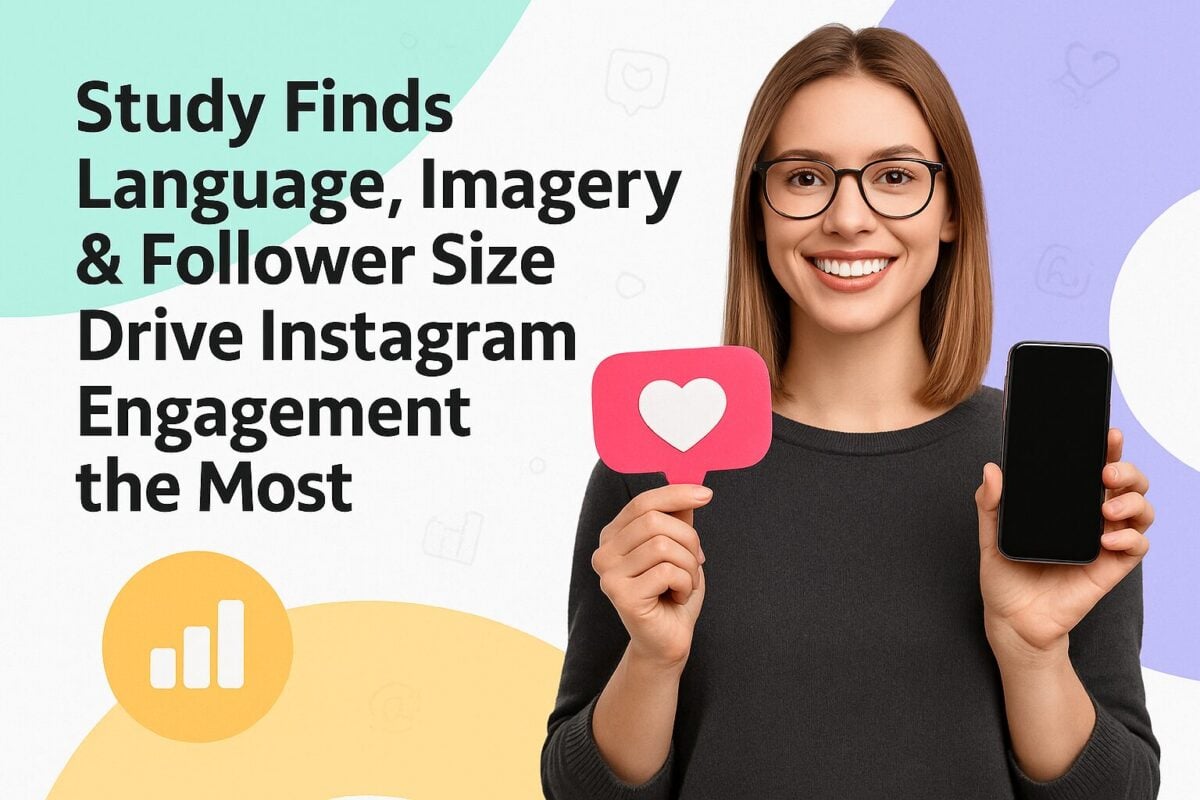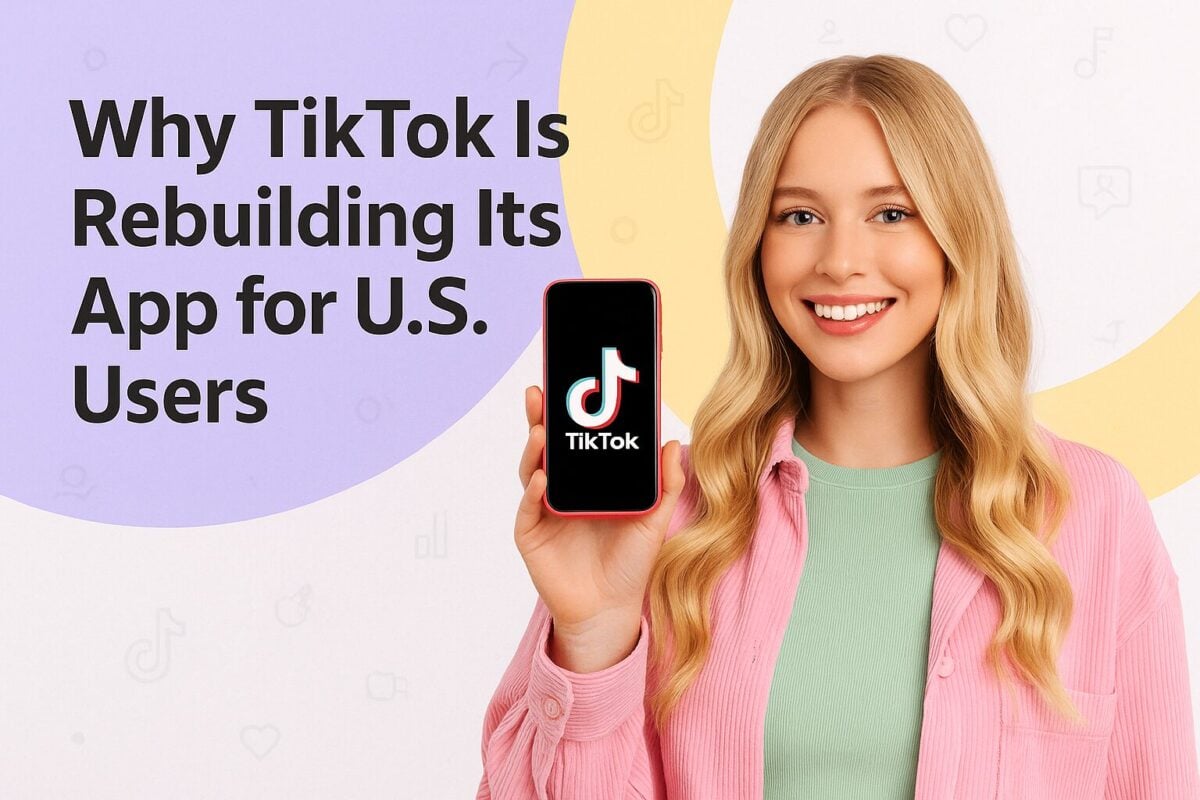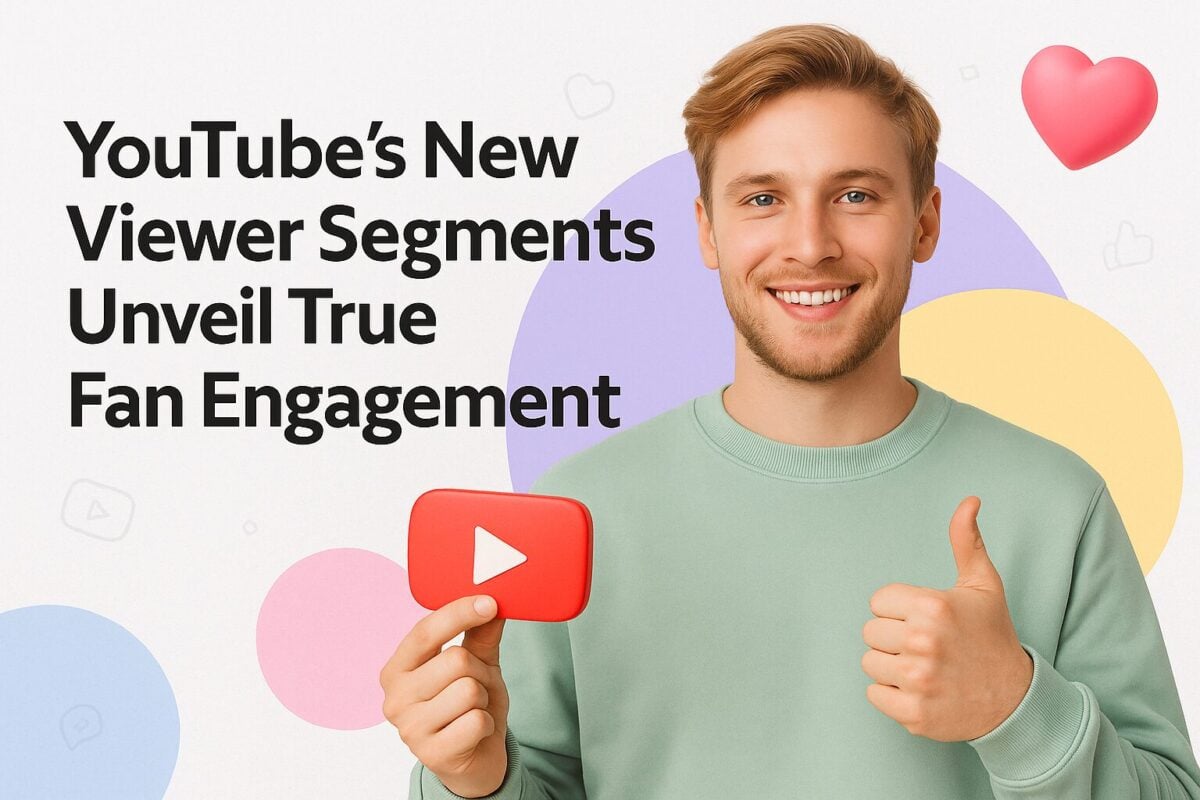As your brand expands its social media presence, you must ensure consistency across multiple accounts, determine what content to produce, set publication dates, and optimize the posts you intend to activate.
A social media scheduling tool is essential in managing all your accounts from one dashboard and ensuring you can publish social posts regularly. The ease of not having to log in and out of different platforms saves time. Online planners also allow you to set the cadence of your posts, discover their reach and engagement, and make tasks and their status visible to your entire team.
Are you searching for a platform where you can connect everyone to a centralized and interactive calendar? We have compiled eight social media planners to help you improve your scheduling efforts and enhance engagement with your followers.
Top 8 Social Media Planners to Schedule Posts Efficiently
Social media is taking over Google and Bing as the new search engine, with almost 76% of consumers using their favorite platforms to find ideas and solutions.

Source: tintup.com
Because social channels have become integral parts of a buyer's journey, about 92% of marketers use them for lead generation and customer retention. The following scheduling tools can help you reach your social followers effectively with timely and impactful content.
With the Brandwatch-Falcon merger in 2022, you can tap into a social media management resource backed by AI-enriched consumer intelligence. The platform lets you schedule and publish content on TikTok, Facebook and Facebook Messenger, Instagram, Twitter, LinkedIn, YouTube, WhatsApp, Salesforce, and Google My Business. Unilever, GSK, Nestle, Carlsberg, and Toyota are some of Brandwatch’s clients. Its listening tool is the star of its social media service suite, allowing you to track your brand across over 100 million sources. You also get historical data—a year’s worth of consumer data and seven years of competitive channel analytics—benchmarking, and performance data from its Social Insights feature. Moreover, Brandwatch added new capabilities to its Iris AI assistant, which you can access across its various products: conversation insights for summarizing real-time consumer opinions; writing assistant for generating, editing, or adjusting the length of written posts; content insights for checking your competitors’ output and performance; and post analysis for measuring your brand’s engagement. Brandwatch doesn’t post its prices but has a Plans page for booking a meeting to discuss rates. Iconosquare’s original name was Statigram. Established in 2011, it aimed to help Instagram users measure their performance metrics. It rebranded to its current name four years later, becoming an in-demand platform for those starting to dive deep into cross-platform management. Over 20,000 marketers who manage at least 232,000 social profiles rely on its services, some of whom belong to big names such as Netflix, Vogue, Ikea, L’oreal, and Patagonia. Iconosquare’s top-selling points are its analytics, social listening (benchmarking and competitor analysis), and reporting tools. Over 100 metrics are available to help gauge your post’s performance on Instagram, Facebook, Twitter, LinkedIn, and TikTok. Moreover, you can track up to 10 competitors and 10 hashtags with its listening tool. Meanwhile, Iconosquare’s Conversations tool identifies and displays your unread comments in one place and lets you reply to them within the platform. This feature also collects all posts with mentions of your brand in a comment, tag, or caption and helps you select contest winners via the Random Comment Picker. Iconosquare has three plans, with rates dependent on the number of social profiles where you’ll publish posts. The Pro (three profiles), Advanced (five profiles), and Enterprise (10 profiles) all come with a 14-day free trial. Three young Moldovan digital marketers who sought a faster workaround for campaign creation and approval are the brains behind Planable. The trio first met at a hackathon in 2015 then later brought their idea to pre-accelerators in Romania and the US before introducing the tool on Product Hunt—a community-based website for showcasing new tech products—in 2017, where it became a top-rated product of the day a year later. Planable has four workflow types: none (for a one-person team), optional (approval sought from team members on a request basis), required (publication requires approval from at least one person; available on Pro plan), and multi-level (approvals come from several individuals; available on Enterprise plan). Send instructions to your content team and get clients’ feedback using the same dashboard by setting your permission levels so you can manage communications for each brand. Planable integrates with Facebook, Twitter, Instagram, LinkedIn, YouTube, Google My Business, Pinterest, and TikTok. Some of its happy customers include Rakuten Viber, Olympus, Socialfly, and Digital Marketing Agency. Planable’s free version lets you produce up to 50 posts, excluding publication on Twitter. Rates for the three paid plans (Basic, Pro, and Enterprise) vary according to the number of users in your team and your workspaces (one workspace per client). Over 3,000 agencies use Agorapulse for seamless cross-platform publishing for diverse clients. This tool can work with Facebook, Twitter, Instagram, LinkedIn, YouTube, TikTok, and Google My Business. The standout feature of this platform—used by Ogilvy, Digital Butter, and Target’s Shipt delivery service—is its Social Media ROI tool. Agorapulse combines your data with Google Analytics insights to produce cohesive and easy-to-understand reports about the social platforms, posts, and conversations that drive your brand’s leads, traffic, and sales. Your ROI will appear on your dashboard as “Total conversion event value.” Meanwhile, its social listening feature allows you to choose up to 100 competitors to track for comparing social media activities (fan posts, page posts, interactions, and engagement). The platform also helps you create eye-catching posts through its AI writing assistant and integration with Canva’s AI image generator. Agorapulse has four plans—standard, professional, advanced, and custom—with a free 30-day trial. You can also open a free account but only schedule 10 posts at a time. This number is reset each time a scheduled post goes live. Moreover, the free plan doesn’t support TikTok, Twitter, and Google My Business profiles. Launched as Calendy in 2016, Loomly’s usage has grown to over 23,500 brands. BBDO, LVMH, Porsche, BMW, Havas, and Henkel are a few of the clients on its roster. The platform’s Post Ideas feature offers your marketers a constant stream of ideas to pursue by browsing through Twitter trends, RSS feeds, and Loomly’s event and date-related celebration list. To give some oomph to your content, use the content creation wizard to access post optimization tips, Giphy and Unsplash images, and the Loomly Media Studio to enhance photos. Facebook, Instagram, Twitter, YouTube, TikTok, LinkedIn, Pinterest, Snapchat, and Google My Business can integrate with this scheduling tool known for its intuitive interface. Loomly aids team leaders with editable approval workflows and notifications via email or instant messaging so team members are in the know on every task or project. This tool’s community management system enables you to respond to customers’ social mentions and comments within the platform. Meanwhile, its analytics tool lets you discover how your posts performed by displaying your metrics across different channels. Loomly offers a 15-day free trial and five plans, starting from its Base package worth $26/month (or $312/year). You can enjoy 25% in savings by getting an annual plan. Pallyy is a cost-effective tool for auto-publishing tools on Instagram, Facebook, Twitter, LinkedIn, Google My Business, TikTok, and Pinterest. While it can schedule posts in advance for all the mentioned channels, this tool offers the most optimizations for Instagram. Its Instagram Feed Planner offers a grid preview for easy planning and scheduling. Meanwhile, the Instagram Bio Link Generator allows you to customize bios with links to your other social channels to widen your reach. You can optimize content through the platform’s free AI-powered tools. Examples include written text generators (for image captions, tweets, bios, and user/group names), photo resizers, Twitter Thread Maker, and Twitter Character Counter. You can schedule 15 posts monthly and use the Instagram Feed Planner on Pallyy’s free plan. However, you can only perform bio link generation, analytics, and bulk scheduling with a Premium Plan, which comes with a 14-day free trial. Paid plans start at an affordable $18/month with an additional $29 monthly charge for every additional user and social set. A social set consists of one account only for all the social channels compatible with Pallyy. SmarterQueue helps ensure that your best-performing content reaches the highest possible percentage of your target audience through its Evergreen Recycling feature. Working on the premise that social messages only have a 1% to 5% average engagement rate, this unique tool repackages your previously published posts in hopes of connecting with your still-unreached followers. To prevent social channels from flagging your account for spamming, SmartQueue won’t repost the same content a second time within 24 hours and a week. As part of smart scheduling, this tool enables you to categorize content—articles, inspiration, blog posts, self-promotion, questions, and tips—and upload posts by category. Then, you can use SmartQueue’s visual calendar for organizing your LinkedIn, Facebook, Twitter, Instagram, Google My Business, and Pinterest posts. You can choose your category colors for your calendar, which also displays a tally of your posts per category daily. SmarterQueue has four plans, including a custom package where you can customize your add-ons. The basic solo plan lets you manage four social profiles and publish up to 10 posts daily. Publer calls itself a social media management superhero. Over 26,000 solopreneurs and marketing teams already turn to it for collaboration, scheduling, and campaign performance analysis. The platform is high on visual appeal—it has an aesthetically pleasing drag-and-drop calendar, integrations to Canva and VistaCreate, and a built-in photo editor. Furthermore, you can use its watermark and signature tools to protect your original visuals and enhance engagement. Need more idea sources? Publer lets you pull content from your favorite websites via the RSS feed. You can also recycle already-published posts, including customer feedback or details about your product or service. This platform integrates with Facebook, Instagram, TikTok, Twitter, LinkedIn, Pinterest, Google Business, YouTube, WordPress, and Telegram. Analytics results show you peak viewing times so you can choose the best publication dates for your posts. Publer’s free plan allows three social accounts and just one Twitter account. However, you must subscribe to paid plans (Professional or Business) to access bulk scheduling, RSS posting, and analytics. Recurring posts and unlimited AI prompts are only available with a Business plan.1. Brandwatch Social Media Management
Top features (products):
Pricing:
2. Iconosquare
Top features:
Pricing:
3. Planable
Top features:
Pricing:
4. Agorapulse
Top features:
Pricing:
5. Loomly
Top features:
Pricing:
6. Pallyy
Top features:
Pricing:
7. SmarterQueue
Top features:
Pricing:
8. Publer
Top features:
Pricing:
If you need additional options, our article titled "31 Best Social Media Scheduling Tools for 2023" lists more tools. The guide also enumerates the factors to consider when choosing the platform that suits your business goals.
Frequently Asked Questions
Can scheduled posts lower engagement?
The rumor that third-party tools like schedulers can ruin social media engagement has existed since 2018. Some marketers believe that social networks like Facebook and Twitter have put a "cap" or limit on the reach of scheduled posts to force users to use their native scheduling tools. However, the real culprits behind poor engagement are low-quality content and inconsistent posting.
Each platform will have its bragging rights regarding how much it has boosted social media engagement for its users. In a recent blog post on the subject, Buffer stated that its latest study showed a 10.3% growth in engagement on social channels following the use of scheduling tools.
What are some of the best practices for using social media planners?
To effectively use social media schedulers:
- First, conduct an audit of your social channels' performance. This step involves using analytics to determine your present follower size, demographics, critical engagement times, and the types of content that work. The results of your review will identify your areas for improvement and help you set growth targets.
- Personalize your messages. Create a good mix of content that consists of educational, influencer, interaction, and promotional content. Find out what's trending among your target demographic.
- Experiment with your posting times on Instagram, Facebook, and other channels to see which ones work best for your target audience.
- Do A/B testing for your content, a type of incrementality testing wherein you send out two versions of a post to determine which results in higher engagement.
- Select your scheduling platform. Start with a tool's free trial or lowest plan to have a feel of its features before upgrading to a paid version.
- Clarify team roles and workflows. Online schedulers should support communications about your specific and overall marketing plans and individual responsibilities.













